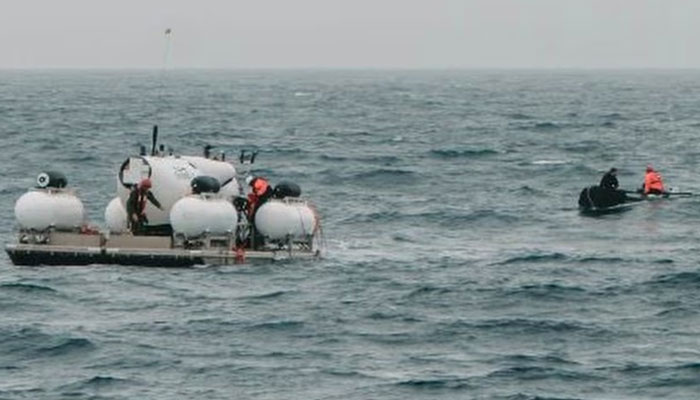OceanGate CEO was warned about potential catastrophic risks in 2018 letter
CEO of OceanGate was cautioned about Titan's dangers that could range from minor incidents to catastrophic consequences
June 21, 2023

OceanGate, the company behind the missing submersible Titan, has faced a warning from industry leaders regarding the potential catastrophic risks associated with its experimental approach.
The CEO of OceanGate, Stockton Rush, was cautioned about the dangers that could range from minor incidents to catastrophic consequences. These concerns were expressed in a letter obtained by the New York Times, shedding light on the potential hazards faced during the company's deep-sea expeditions.
Industry leaders sound the alarm:
In 2018, leaders within the submersible industry sent a letter to Stockton Rush, urging caution and highlighting the risks associated with OceanGate's experimental approach for Titan. They stressed that the company's unconventional methods could lead to various problems, with potential outcomes ranging from minor issues to devastating consequences. The concerns raised in the letter underscore the serious nature of the risks involved in OceanGate's deep-sea exploration endeavors.
The warning:
The letter sent to Rush specifically highlighted the need for precautionary measures, expressing that problems arising from their experimental approach could have catastrophic implications. While the exact details of the warning were not disclosed, it is evident that industry leaders felt compelled to alert OceanGate's CEO to the potential dangers associated with their unconventional methods. The emphasis on catastrophic risks serves as a stark reminder of the seriousness of the situation.
Legal issues and safety claims:
Alongside the warning, OceanGate has faced legal challenges relating to safety concerns of Titan. In 2018, the company was involved in a legal dispute with a former employee who raised issues about safety protocols within OceanGate. The case, which ultimately settled out of court, further highlights the scrutiny faced by the company regarding its safety practices and the potential risks involved in their deep-sea expeditions.
Lessons for future expeditions:
The warning given to OceanGate's CEO and the legal issues the company has faced serve as important reminders of the need for thorough risk assessment and safety protocols in deep-sea explorations. As companies venture into uncharted territories, it becomes imperative to prioritize safety above all else. The experiences of OceanGate should prompt industry leaders and regulators to establish stringent safety guidelines and procedures to minimize risks and ensure the well-being of individuals involved in future deep-sea expeditions.
The warning received by OceanGate's CEO from industry leaders about the catastrophic risks associated with the company's experimental approach underscores the seriousness of the challenges faced in deep-sea exploration.
As the search for the missing submersible continues, the need for enhanced safety measures and comprehensive risk assessments becomes evident.
The case of OceanGate serves as a valuable lesson for the industry, emphasizing the importance of prioritizing safety to avoid potential catastrophic incidents in future deep-sea expeditions.









